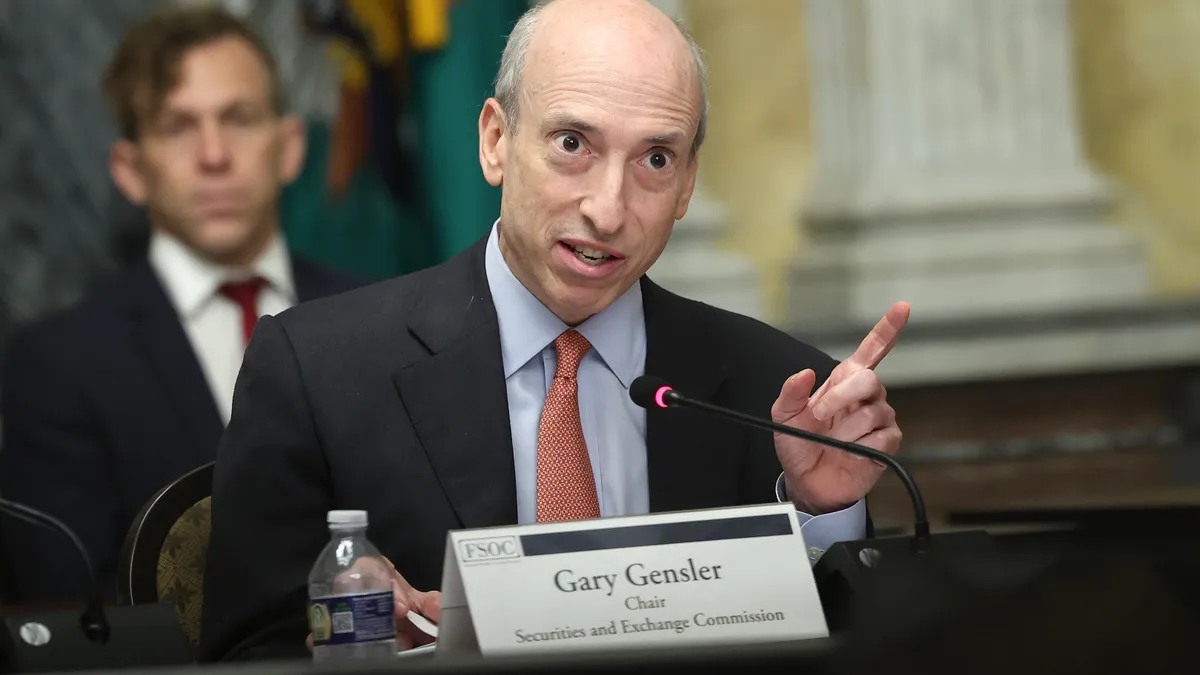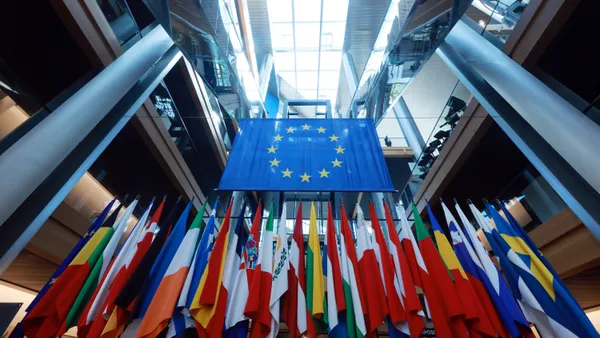Dive Brief:
- Securities and Exchange Commission Chair Gary Gensler said Monday the agency is looking to not overstep its authority as a securities regulator, rather than a climate one, but if it did not publish a final disclosure rule or the rule was overturned by the courts, American businesses would be at the behest of the European Union’s climate disclosures.
- While thousands of companies may be forced to comply with the EU’s Corporate Sustainability Reporting Directive in the absence of an SEC rule, the agency will have conversations with its European counterparts about using the upcoming American standard as a compliance substitute, Gensler said during The Council on Foreign Relations’ event.
- Gensler’s comments came a few days before the agency announced it had pushed the final release of the climate reporting rule to April 2024, as part of the Biden administration’s fall regulatory agenda.
Dive Insight:
If the SEC is able to work out a substituted compliance agreement with the EU after it releases its own climate disclosure rule next year, U.S. companies would only have to comply with a single materiality standard and disclose risks that matter to investors. Without it, Deloitte estimates more than 3,000 U.S. companies would have to abide by the CSRD’s double materiality standard, which requires companies to disclose how their actions affect both investors and society more broadly.
Further, CSRD’s reporting requirements on scope 3 emissions are more extensive as it entails organizations across all sectors to collect and report data on emissions generated from their value and supply chain. In contrast, the proposed SEC rule only requires companies to report scope 3 emissions if the company considers them to be “material” or if the company itself sets an emissions target or goal that includes scope 3.
Gensler told the think tank the agency received over 16,000 public comments on the proposed rule to require companies to disclose its scope 1, scope 2 and scope 3 emissions. The framework for the SEC’s disclosure is based on recommendations from the Task Force for Climate-related Financial Disclosures.
Questions about how the SEC should require scope 3 emissions disclosure — or emissions in a company’s supply chain from businesses that are neither owned nor operated by the reporting entity — without overreaching its authority has contributed to the final rule’s hold up, Gensler said in October, the same month the final rule was initially expected to release.
The EU previously announced companies headquartered outside of the European bloc will have until 2026 to begin complying with the CSRD, giving Gensler and the SEC time to work out an agreement.
“[The SEC is a] securities regulator,” Gensler said. “We are not a climate risk regulator. We're not a climate regulator. We're not a greenhouse gas regulator. And that means that companies, through their disclosures, speak to their investors. That's our role, and we have an important role to make sure that those disclosures are consistent and comparable.”
Under the CSRD, non-EU companies who have more than $160 million (150 million euros) in global revenues will have to report if more than $43.25 million is generated in the EU, and parent companies that meet the same revenue thresholds and have more than 500 employees would also have to report.
In addition to releasing its final climate disclosure rule, the SEC also expects to release a final rule requiring “certain investment advisers and investment companies” to provide additional disclosures on ESG investment practices and propose a rule to enhance human capital management disclosures in April 2024.











